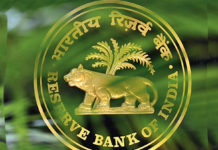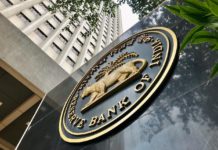While the country has seen improvements on grant of construction permits and trade across borders, the usual caveats apply on what the rankings mean and how the World Bank’s changing methodology may have affected them.

India has jumped 23 places to the 77th position in the World Bank’s ‘ease of doing business’ ranking released Wednesday, in a development that comes as a shot-in-the-arm for the Narendra Modi government ahead of the 2019 general elections.
India was ranked 100th in World Bank’s Doing Business Report last year, moving up from 131th position that it recorded in 2016.
However, as The Wire and US-based think-tank Centre for Global Development (CDG) noted at the time, much of India’s rise in 2017 came as a result of methodological changes carried out by the World Bank. It’s unclear at the moment whether these changes were ironed out for the 2018 version released on Wednesday.

The new rankings this time around will come as a boost for the Centre, which faces strong dissenting voices from opposition parties ahead of the general elections next year.
In the ‘Doing Business’ 2019 report, the World Bank has said India improved on six of the 10 parameters relating to starting and doing business in a country.
These parameters include ease of starting a business, construction permits, getting electricity, getting credit, paying taxes, trade across borders, enforcing contracts and resolving insolvency.India was ranked at the 142nd position among 190 nations when the Modi government came to power in 2014. It rose to 100th spot in the last ranking from the 131st rank in the previous year.
New Zealand topped the list of 190 countries in ease of doing business, followed by Singapore, Denmark, and Hong Kong.
The United States is placed eight and China has been ranked 46th. Neighbour Pakistan is placed at 136. World Bank put India among the top 10 economies to make the most improvements.
EoDB flaws
Other criticisms of the World Bank’s rankings are well known: they do little to provide a comprehensive picture of the investment climate, it doesn’t talk about prospects of growth and that its sources of data collection are primarily limited to two cities (Mumbai and Delhi).

In 2017, a more granular-level study and analysis by the Niti Aayog and the IDFC Institute showed that the World Bank’s assessment also fell short in certain areas, such as the time it takes to start a business. Shortly after the study was released, the Modi government distanced itself from the report, saying it did not represent “official views”.
“What firms actually encounter ‘on the ground’ is perhaps more important, but there are limitations to our ability to measure and interpret those experiences without bias. The Doing Business reports’ de jure indicators offer a snapshot of a country’s regulatory cholesterol, but likewise should not be viewed in isolation,” policy researchers Matthew Lillehaugen and Milan Vaishnav wrote in 2017 on the rankings.

(With inputs from PTI)

















